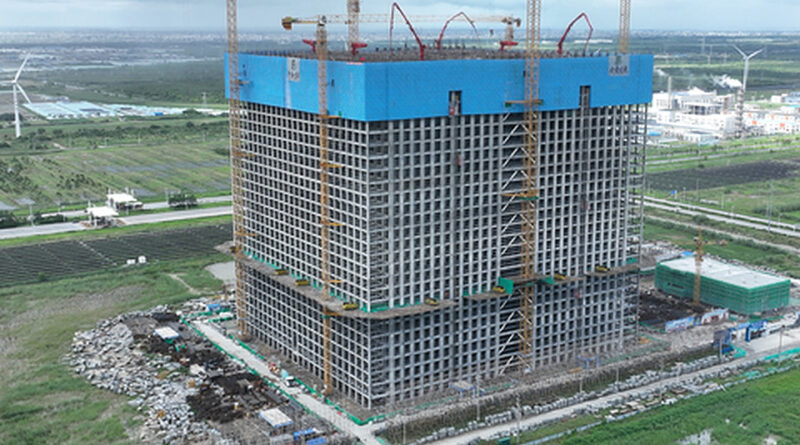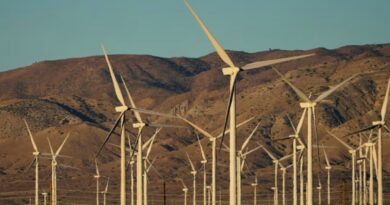Energy Vault signs gravity storage deal covering southern Africa
Under a new 10-year agreement, Gravity Energy Storage Solutions (GESSOL) has secured the rights to deploy Energy Vault’s gravity energy storage technologynology throughout the 16 nations of the Southern African Development Community region. Energy Vault CEO Robert Piconi says the deployments will smooth out load shedding and optimize grid performance.
Gravity storage system supplier Energy Vault has signed a licensing and royalty agreement with GESSOL, which is expected to facilitate multi-gigawatt hours of long-duration storage in the Southern African Development Community (SADC) region.
GESSOL is a consortium focused on energy storage deployments in southern Africa that includes project engineering group iX Engineers, renewable energy specialist Sizana Solutions, and construction contractor WBHO. Under the terms of the 10-year agreement, the group has exclusive rights to deploy Energy Vault’s gravity storage technology throughout the SADC region.
This includes Switzerland-based Energy Vault’s gravity energy storage system (GESS) and VaultOS energy management system, as well as its short-duration battery and ultra-long-duration green hydrogen hybrid systems.
The agreement, which was executed in the final quarter of 2023, will serve energy storage use cases within the public utility, mining, IPP/microgrid, and broader industrial sectors.
The work is expected to contribute to the SADC region’s energy storage needs, which are estimated to surpass 125 GWh by 2035, and accelerate the area’s clean energy transition.
According to the SADC, an electricity shortage has strained the region since 2007. Only 50% of residents have access to electricity, a figure that falls to 32% in rural areas. Meanwhile, coal currently supplies 62% of power generation in southern Africa.
“We conducted extensive due diligence to bring the most economical, efficient, flexible, and sustainable long-duration energy storage solution to the SADC region, and Energy Vault’s gravity storage technology is the clear choice,” said GESSOL Director Les Lange.
Lange noted that southern Africa is a rapidly developing region with increasing energy demand, which historically has been met with coal-fired plants.
“Economic development in the SADC region is critical for improving quality of life, but we need to rapidly wean the region off of coal to simultaneously reduce carbon emissions and grow our economy,” he said.
It is hoped the deployment will also help resolve grid issues that have plagued South Africa, with 2023 being the worst year on record for frequent scheduled power cuts in the country, also known as load shedding. In November, the country’s public utility, Eskom, switched on its largest battery storage project to date to mitigate the challenge of load shedding as part of a wider battery storage rollout.
Robert Piconi, Energy Vault’s chairman and CEO, said the rapid scale-up of the company’s product line in the SADC region will “increase renewable energy capacity, smooth out load shedding, optimise grid performance through our software applications, and provide a necessary complement to intermittent renewable generation to firm grid resiliency.”
Piconi said that the company has provided GESSOL with its complete energy storage range, tailored to meet various storage duration requirements and customer scenarios, in order to expedite deployments across the SADC region. The objective is to contribute significantly to emissions reduction in the region, in line with climate targets, while fostering sustainable economic growth.
Energy Vault’s expansion into southern Africa follows developments in China, where the company has a 3.3 GWh pipeline of projects. It completed a 25 MW/100 MWh project, its first commercial-scale gravity-based storage facility, in Shanghai in August.
Source: .pv-magazine.com




